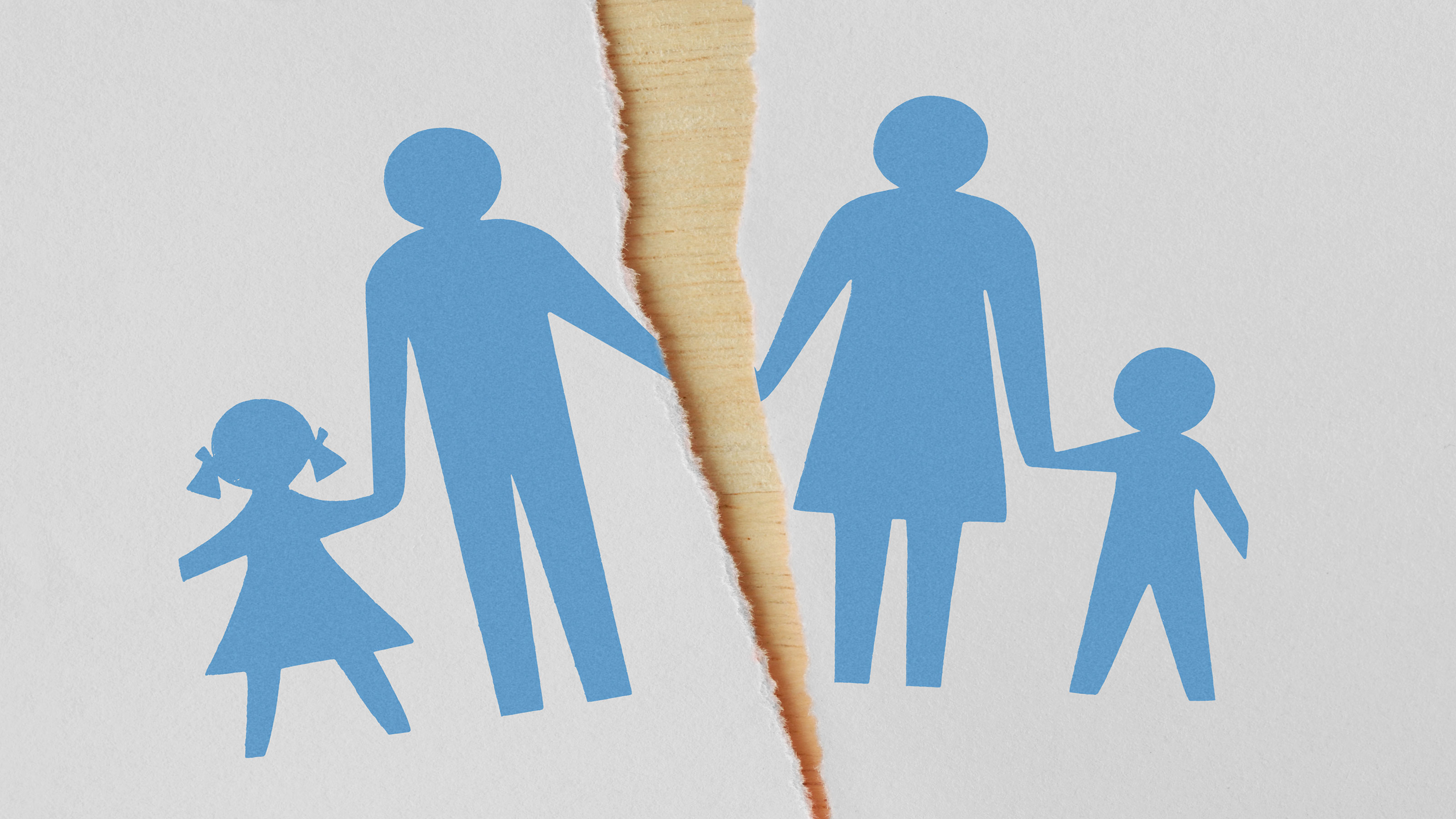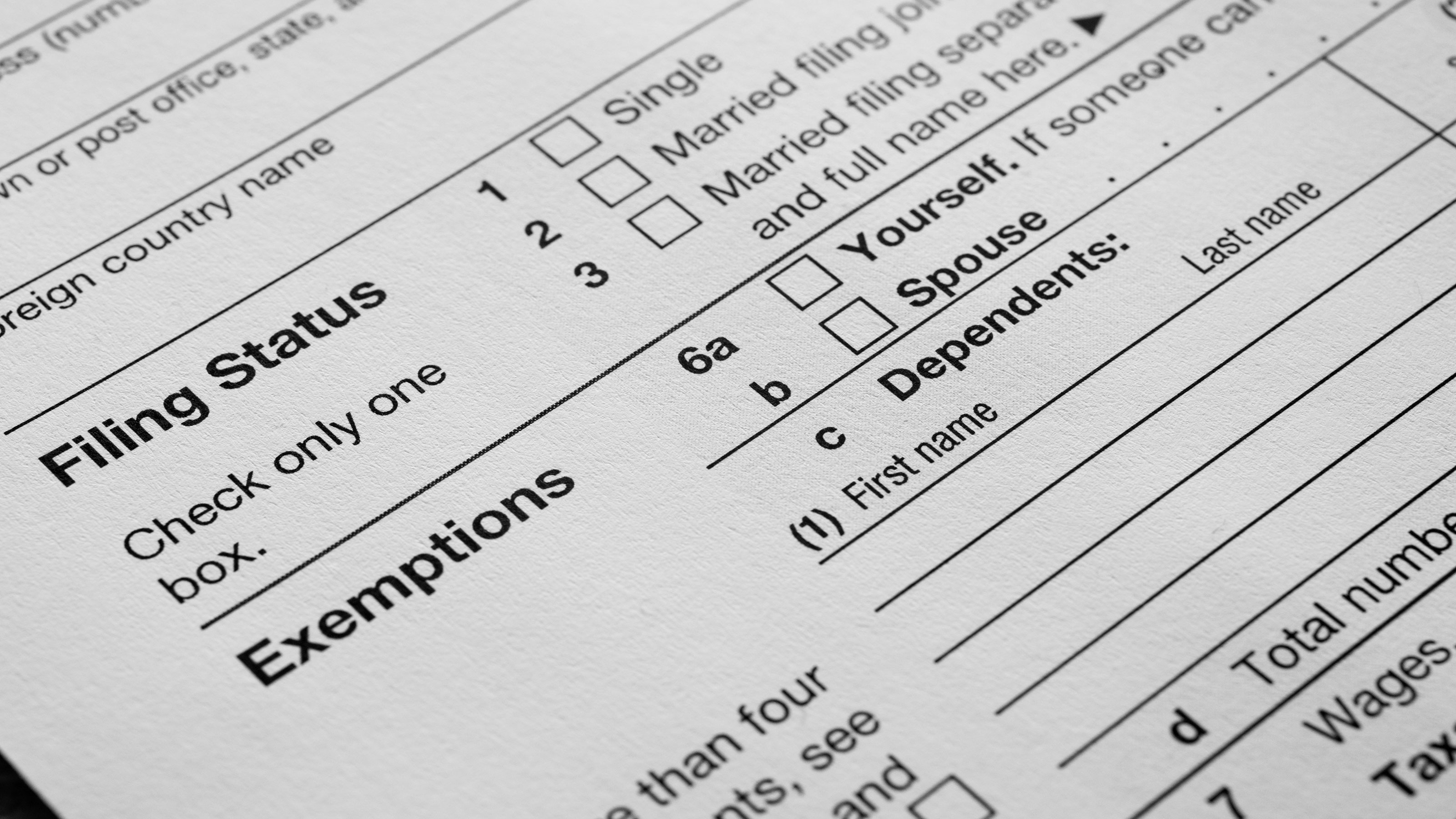Who's Not Eligible for Child Tax Credit Payments (It May Explain Why You're Not Getting Them)
The IRS has sent two rounds of child tax credit payments so far. Here's why some families haven't received any monthly payments.


Profit and prosper with the best of Kiplinger's advice on investing, taxes, retirement, personal finance and much more. Delivered daily. Enter your email in the box and click Sign Me Up.
You are now subscribed
Your newsletter sign-up was successful
Want to add more newsletters?

Delivered daily
Kiplinger Today
Profit and prosper with the best of Kiplinger's advice on investing, taxes, retirement, personal finance and much more delivered daily. Smart money moves start here.

Sent five days a week
Kiplinger A Step Ahead
Get practical help to make better financial decisions in your everyday life, from spending to savings on top deals.

Delivered daily
Kiplinger Closing Bell
Get today's biggest financial and investing headlines delivered to your inbox every day the U.S. stock market is open.

Sent twice a week
Kiplinger Adviser Intel
Financial pros across the country share best practices and fresh tactics to preserve and grow your wealth.

Delivered weekly
Kiplinger Tax Tips
Trim your federal and state tax bills with practical tax-planning and tax-cutting strategies.

Sent twice a week
Kiplinger Retirement Tips
Your twice-a-week guide to planning and enjoying a financially secure and richly rewarding retirement

Sent bimonthly.
Kiplinger Adviser Angle
Insights for advisers, wealth managers and other financial professionals.

Sent twice a week
Kiplinger Investing Weekly
Your twice-a-week roundup of promising stocks, funds, companies and industries you should consider, ones you should avoid, and why.

Sent weekly for six weeks
Kiplinger Invest for Retirement
Your step-by-step six-part series on how to invest for retirement, from devising a successful strategy to exactly which investments to choose.
The IRS just sent the second of six monthly child tax credit payments. These payments, which can be as high as $300-per-child each month, have the potential to keep millions of American families out of poverty. However, while most parents have already pocketed hundreds or even thousands of dollars, other families haven't received a single dime.
The monthly payments are simply advance payments of the child tax credit you would otherwise claim on your 2021 tax return. You'll get half the total credit amount in monthly payments from July to December this year, and then claim the other half when you file your tax return next year. In most cases, the IRS will determine your eligibility for and the amount of your child tax credit and advance payments based on either your 2020 or 2019 tax return, whichever one was most recently filed. (The IRS also has an online tool that helps you determine if you're eligible.)
But there are various reasons why someone might not receive any monthly payments from the IRS. It could be due to the family's income, the age of a child, where they live, or some other disqualifying factor. If you haven't received any money yet, here's a list of common reasons why you might not get monthly child tax credit payments. Hopefully, you're getting payments if you're expecting them, especially if you're one of the millions of Americans still struggling financially because of the pandemic. But if you're not, it's easier to plan your next move if you know why you were left out.
(For complete coverage of the 2021 child tax credit, including more information about the monthly advance payments, see Child Tax Credit 2021: How Much Will I Get? When Will Monthly Payments Arrive? And Other FAQs.)

Your Child is Too Old
To qualify for the 2021 child tax credit – and, therefore, for the monthly payments – your child must be 17 years old or younger at the end of the year. That's actually one year older than what was permitted in previous years. So, if your kid turns 17 in 2021, you get to claim the child tax credit for him or her one more time. But if your child is 18 or older at the end of this year, you can't claim the credit or receive monthly payments for him or her.
You may not be completely out of luck if you have a dependent child who is over the age limit, though. While you're not eligible for the child tax credit or advance payments, you may be able to snag an extra $500 when you file your 2021 tax return next year by claiming the credit for "other dependents." This alternative credit may even be available if your kid is in college.

Your Child Was Born in 2021
Assuming you're otherwise eligible, you can claim the 2021 child tax credit if you have a baby this year. However, you still might not get monthly advance payments for the child because the IRS doesn't know about your new bundle of joy. The tax agency is looking at previous tax returns to see who is eligible for monthly payments. If they don't see a child on your 2020 or 2019 return, whichever was filed most recently, they're not going to send you monthly payments.
The good news is that the IRS will have a solution for this problem later in the summer when it updates the Child Tax Credit Update Portal to allow you to add qualifying children you will claim on your 2021 tax return. Once the IRS is aware of your new son or daughter, it can adjust your estimated 2021 child tax credit and then adjust the amount of your monthly payments.
If you don't use the IRS portal later this year to add your child, you can still claim the full amount of your allowable child tax credit for that child when you file your 2021 tax return next year. So, you won't lose any money…but you'll have to wait to get it.

Your Income is Too High
For 2021, the child tax credit is worth $3,000-per-child for children ages 6 to 17 and $3,600-per-child for kids who are 5 years old or younger. That translates to maximum monthly payments of $250-per-child or $300-per-child, respectively.
However, the child tax credit is phased-out for people at certain income levels (based on your 2020 or 2019 tax return). If your total credit is reduced, so will your monthly payments. If your income is high enough, your credit and monthly payments will be completely phased out and you'll get nothing!
There's a complicated system under which your credit and payments can be phased-out in two different ways. Without going into too much detail, you're at risk of an initial reduction if the modified adjusted gross income (AGI) on your most recent tax return is above $75,000 for single filers, $112,500 for head-of-household filers, and $150,000 for married couples filing a joint return. During this step, your total credit can't be reduced below $2,000-per-child, which means your monthly payment won't be less than $167-per-child.
The second phase-out can totally wipe out your credit and monthly payment if your modified AGI exceeds $400,000 on a joint return or $200,000 on other returns. However, it's still a gradual reduction, so even people with incomes above the $400,000/$200,000 threshold can still qualify for a credit and monthly payments. (Use Kiplinger's 2021 Child Tax Credit Calculator to see how your income can impact your credit and advance payments.)
If your income changes in 2021, you'll be able to let the IRS know later this summer using the Child Tax Credit Update Portal. If this year's income is lower than in 2020 (or 2019), then your monthly payments may increase after using the online portal. If your 2021 income increases, make sure to let the IRS know that, too. You don't want to receive more in monthly payments than what you're entitled to, because you then risk having to pay it back next year when you file your 2021 tax return.

You Haven't Filed a Recent Tax Return
As mentioned above, the IRS will base monthly payment amounts on your 2020 or 2019 tax return in most cases. But not everyone is required to file a tax return. So, if you haven't filed a recent return, will you still get monthly child tax credit payments?
It depends. If you used the IRS's "Non-Filers: Enter Payment Info Here" portal last year to claim a first-round stimulus check, your monthly payments will be based on the information you provided through the tool. However, if you didn't use the non-filers tool last year and you want to receive monthly payments, you need to use the new Child Tax Credit Non-Filer Sign-Up Tool, file a "simplified" return or zero AGI return using the IRS's special procedures, or file a normal 2020 tax return. If you don't act now, you won't receive any advance child tax credit payments. (For more information, see How to Get Child Tax Credit Payments if You Don't File a Tax Return.)

Your Child Doesn't Have a Social Security Number
Many changes were made to the child tax credit for the 2021 tax year. The credit amount was increased, it's fully refundable, 17-year-old children qualify, and, of course, advance payments were authorized. But there are other requirements from previous years that weren't changed. For instance, you still can't claim the child tax credit, or get monthly payments, for a kid who doesn't have a Social Security number.
Your child's Social Security number must also be "valid for employment" in the U.S. and issued by the Social Security Administration (SSA) before the due date of your 2021 tax return (including extensions). If your child was a U.S. citizen when he or she received the Social Security number, then it's valid for employment in the U.S. If "Not Valid for Employment" is printed on the child's Social Security card and his or her immigration status has changed so that of a U.S. citizen or permanent resident, ask the SSA for a new Social Security card. If "Valid for Work Only With DHS Authorization" is printed on the card, your child has the required Social Security number only as long as the Department of Homeland Security authorization is valid.
You, and your spouse if you're married, must also have a Social Security number or an Individual Taxpayer Identification Number (ITIN) to claim the child tax credit and receive advance payments. In addition, you'll only receive monthly payments only if you used your correct Social Security number or ITIN when you filed your 2020 or 2019 tax return or entered information into the IRS's non-filer tool in 2020 to receive a first-round stimulus check.

Your Child is a Nonresident Alien
Your child must be either a U.S. citizen, U.S. national, or U.S. resident alien for you to claim the child tax credit or receive monthly advance payments. There is one exception: If you're a U.S. citizen or U.S. national and your adopted child lived with you all year as a member of your household, the child is considered a U.S. citizen for child tax credit purposes.
Generally, a "resident alien" either has a green card or is physically present in the U.S. for a certain amount of time. A "U.S. national" is someone individual who, although not a U.S. citizen, owes his or her allegiance to the United States. American Samoans and Northern Mariana Islanders can also choose to be a U.S. national instead of a U.S. citizen.
See IRS Publication 519 for more information on the taxes for U.S. nationals and resident aliens.

Your Ex-Spouse Claimed Your Child as a Dependent Last Year
If the IRS looks at your ex-spouses 2020 tax return and sees that he or she claimed your child as a dependent on that return, your ex is going to get the monthly child tax credit payments starting July 15 – even if you will claim the child as a dependent for 2021. You'll be able to correct this when the IRS updates its Child Tax Credit Update Portal later this summer, but until then you won't see any advance payments. Once you revise your information in the portal, the IRS will adjust your estimated 2021 child tax credit and start sending you monthly payments.
If the tables are turned and you're receiving monthly payments even though your ex-spouse will claim your child as a dependent for the 2021 tax year, you should consider using the portal now to opt-out of the payments. That will reduce the risk of having to repay any advance child tax credit payments when you file your 2021 tax return next year.

You Live Outside the U.S.
To receive monthly child tax credit payments, you (or your spouse if you're filing a joint return) must have your main home in the U.S. for more than half of 2021 or be a bona fide resident of Puerto Rico for the year. Your main home can be any location where you regularly live, as long as it's in one of the 50 states or the District of Columbia. Your main home can be a house, apartment, mobile home, shelter, temporary lodging, or other location. It doesn't have to be the same physical location throughout the year, either.
You also don't need a permanent address to get monthly payments. If you're away from home temporarily because of illness, education, business, vacation, or military service, you're still generally considered to be living in your main home for child tax credit purposes.

You Can Be Claimed as a Dependent
If you can be claimed as a dependent one someone else's tax return, you can't claim anyone else as a dependent on your return. If you're filing a joint return and your spouse can be claimed as a dependent by another person, you and your spouse can't claim any dependents on your joint return.
If you can't claim your child as a dependent because of this rule, you can't claim the child tax credit for him or her. If you can't claim the child tax credit, you're not eligible for advance payments of the credit. So, if you can be claimed as a dependent on another person's tax return, then you won't receive monthly payments.
This is one of the rules for 2021 that was carried over from previous years.
Profit and prosper with the best of Kiplinger's advice on investing, taxes, retirement, personal finance and much more. Delivered daily. Enter your email in the box and click Sign Me Up.
Rocky Mengle was a Senior Tax Editor for Kiplinger from October 2018 to January 2023 with more than 20 years of experience covering federal and state tax developments. Before coming to Kiplinger, Rocky worked for Wolters Kluwer Tax & Accounting, and Kleinrock Publishing, where he provided breaking news and guidance for CPAs, tax attorneys, and other tax professionals. He has also been quoted as an expert by USA Today, Forbes, U.S. News & World Report, Reuters, Accounting Today, and other media outlets. Rocky holds a law degree from the University of Connecticut and a B.A. in History from Salisbury University.
-
 The New Reality for Entertainment
The New Reality for EntertainmentThe Kiplinger Letter The entertainment industry is shifting as movie and TV companies face fierce competition, fight for attention and cope with artificial intelligence.
-
 Stocks Sink With Alphabet, Bitcoin: Stock Market Today
Stocks Sink With Alphabet, Bitcoin: Stock Market TodayA dismal round of jobs data did little to lift sentiment on Thursday.
-
 Betting on Super Bowl 2026? New IRS Tax Changes Could Cost You
Betting on Super Bowl 2026? New IRS Tax Changes Could Cost YouTaxable Income When Super Bowl LX hype fades, some fans may be surprised to learn that sports betting tax rules have shifted.
-
 Should You Do Your Own Taxes This Year or Hire a Pro?
Should You Do Your Own Taxes This Year or Hire a Pro?Taxes Doing your own taxes isn’t easy, and hiring a tax pro isn’t cheap. Here’s a guide to help you figure out whether to tackle the job on your own or hire a professional.
-
 Can I Deduct My Pet On My Taxes?
Can I Deduct My Pet On My Taxes?Tax Deductions Your cat isn't a dependent, but your guard dog might be a business expense. Here are the IRS rules for pet-related tax deductions in 2026.
-
 Don't Overpay the IRS: 6 Tax Mistakes That Could Be Raising Your Bill
Don't Overpay the IRS: 6 Tax Mistakes That Could Be Raising Your BillTax Tips Is your income tax bill bigger than expected? Here's how you should prepare for next year.
-
 Will IRS Budget Cuts Disrupt Tax Season? What You Need to Know
Will IRS Budget Cuts Disrupt Tax Season? What You Need to KnowTaxes The 2026 tax season could be an unprecedented one for the IRS. Here’s how you can be proactive to keep up with the status of your return.
-
 3 Retirement Changes to Watch in 2026: Tax Edition
3 Retirement Changes to Watch in 2026: Tax EditionRetirement Taxes Between the Social Security "senior bonus" phaseout and changes to Roth tax rules, your 2026 retirement plan may need an update. Here's what to know.
-
 IRS Tax Season 2026 Is Here: Big Changes to Know Before You File
IRS Tax Season 2026 Is Here: Big Changes to Know Before You FileTax Season Due to several major tax rule changes, your 2025 return might feel unfamiliar even if your income looks the same.
-
 A Free Tax Filing Option Has Disappeared for 2026: Here's What That Means for You
A Free Tax Filing Option Has Disappeared for 2026: Here's What That Means for YouTax Filing Tax season officially opens on January 26. But you'll have one less way to submit your tax return for free. Here's what you need to know.
-
 2026 State Tax Changes to Know Now: Is Your Tax Rate Lower?
2026 State Tax Changes to Know Now: Is Your Tax Rate Lower?Tax Changes As a new year begins, taxpayers across the country are navigating a new round of state tax changes.

